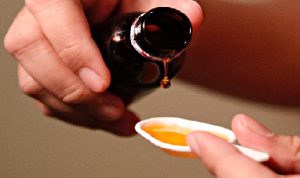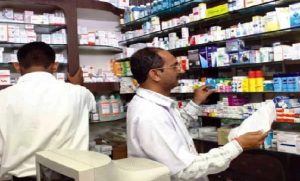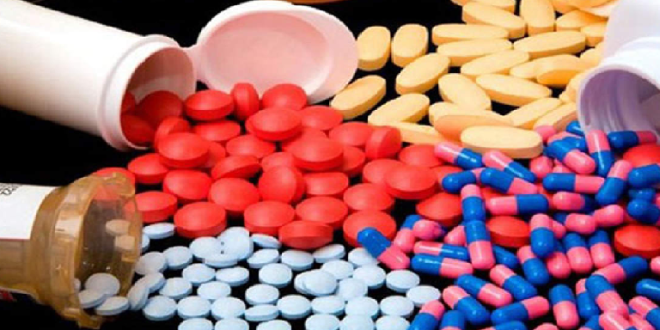28-09-2024
Bureau Report + Agencies
NEW DELHI/ BENGALURU: India’s drug regulator has found more than 50 drugs, including some batches of widely used antacids and paracetamol, to be substandard or fake, according to government documents.
The regulator, Central Drugs Standard Control Organization, releases a monthly list of substandard or fake medicines sold in the country after routine tests across the country by multiple agencies.
 The regulator found some drugs as “not of standard quality” including a batch each of Alkem Laboratories’, opens new tab popular antacid Pan-D, Hetero’s anti-infective Cepodem and Shelcal, a vitamin and calcium tablet brand made by privately-owned Pure & Cure Healthcare, and several antibiotics, according to the lists for August.
The regulator found some drugs as “not of standard quality” including a batch each of Alkem Laboratories’, opens new tab popular antacid Pan-D, Hetero’s anti-infective Cepodem and Shelcal, a vitamin and calcium tablet brand made by privately-owned Pure & Cure Healthcare, and several antibiotics, according to the lists for August.
Sun Pharmaceutical Industries, opens new tab separately informed the regulator of a fake batch of Pantocid, a popular Indian brand of an antacid called pantoprazole. The agency said it is investigating the matter.
Fake, or “spurious”, batches of Sun’s drug Pulmosil, used to treat high blood pressure in the lungs, and Glenmark Pharmaceuticals’, opens new tab anti-hypertension drug Telma H, among others, were also notified by the companies to the regulator and were being investigated.
“When a medicine is found to be below quality standards, the drug regulator sends a notice to the manufacturer to check and recall that batch of product. Companies too conduct their own tests on leftover samples to check for the possibility of counterfeit,” said Rajiv Singhal, general secretary of drug retailer body All India Organization of Chemists and Druggists.
The companies did not immediately respond to a media request for comment.
Gastrointestinal, anti-diabetic, vitamins and nutraceutical drug sales were one of the top contributors to the domestic pharma market growth in August, according to research firm Pharmarack.
India, one of the world’s largest drug producers and exporters, is working to restore confidence after Indian-made cough syrups were linked to the deaths of children in Gambia, Uzbekistan, and Cameroon.
Last month, India has found violations related to manufacturing and laboratory practices at drug-maker Riemann Labs, whose cough syrup was linked to the deaths of children in Cameroon, a government health official told media.
 Authorities have stepped up scrutiny of drug-makers after some cough syrups made in India were linked to deaths of dozens of children overseas.
Authorities have stepped up scrutiny of drug-makers after some cough syrups made in India were linked to deaths of dozens of children overseas.
Riemann Labs did not respond to requests for comment from Reuters. It is the fourth Indian cough syrup maker to stop production after regulators found lapses.
Rajesh Bhatia, one of the three directors at Riemann Labs, had told media previously he was not aware of the matter.
Regulators inspected the company’s production unit in Madhya Pradesh state and issued a notice after finding lapses, said Sudam Khade, the state’s drugs controller.
“Some violations in good manufacturing practices and good lab practices were found,” Khade said, without specifying what the violations were.
Samples of all of the company’s products had been sent for testing and further action would be decided based on the results, Khade said.
The government told parliament on Tuesday that Riemann was directed to stop manufacturing after inspections by federal and state regulators.
Riemann has been identified as the maker of Naturcold cough syrup, Khade said.
A batch of it was linked to the death of at least six children in Cameroon by authorities there. Some media, however, reported the deaths of 12 children.
 Pressmediaofindia
Pressmediaofindia




